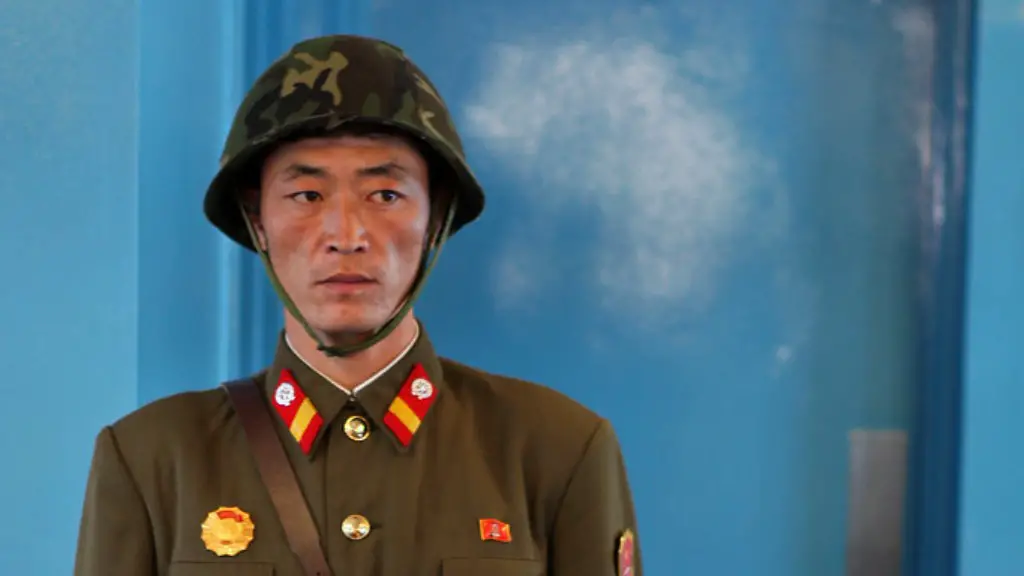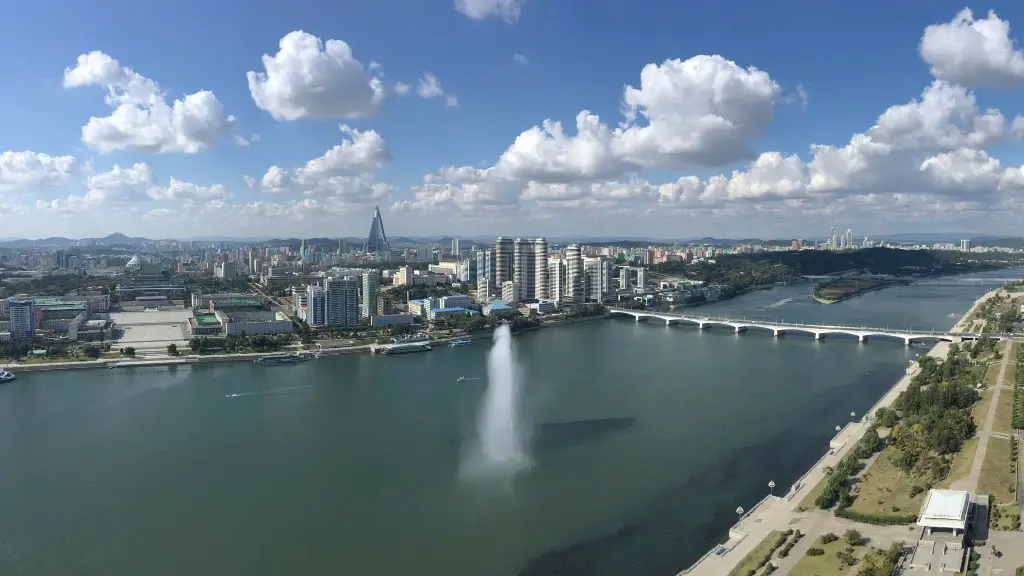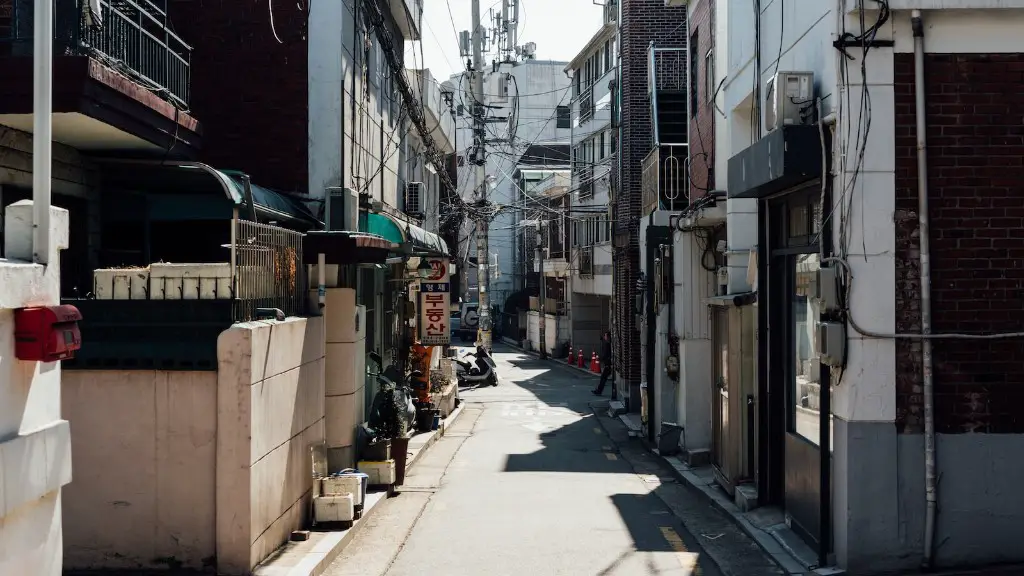Aid Supply
North Korea, officially the Democratic People’s Republic of Korea is a country where the ruling government is often accused of violating human rights and not following ethical economic policies. However, it receives international aid from various countries, international organizations, and nongovernmental organizations that is, in turn, channeled back to the people of the country. According to the United Nations, a total of $124.7 million in foreign aid was received in 2016, almost all from South Korea, China, the United Kingdom, Japan, and Sweden.
The majority of the aid that has gone to North Korea has been in the form of food, medicine, and humanitarian aid. The purpose of this aid was primarily to provide the North Korean people with the basic necessities and improved living conditions. UNICEF has been at the forefront of the aid effort by providing medicine and supplies to communities in North and South Korea. They are also collaborating with international partners to address the widespread lack of access to clean water, healthcare, and other essential services. In 2016, UNICEF provided an estimated $11.2 million of aid to North Korea, making them the largest supplier of foreign aid that year.
Aid organizations have emphasized that there is an urgent need for better infrastructure, including roads, schools, hospitals, primary health care and other public services, in order to support the basic needs of the people living in North Korea. The World Food Programme is another major player in the aid effort. They have provided more than 1.2 million tons of food since 2010, as well as resources and training to help local communities become more self-sufficient. In 2016, the WFP’s food programs in North Korea cost approximately $63.5 million.
Another significant contributor to the North Korean aid effort is South Korea, who sent 1.6 million tons of food and materials to their northern neighbor in 2016 alone. South Korean aid organizations have also provided an estimated $5.5 million to North Korea in the form of grants for infrastructure projects and aid for vulnerable people.
Economic Support
China is the primary economic supporter of North Korea, providing the majority of the country’s food and fuel, as well as much of its foreign currency reserves. China also maintains strong business ties with the country, partly due to economic opportunities for businesses in both countries. However, Chinese aid and foreign investment has been subject to increasingly tight restrictions, particularly following the country’s nuclear weapons tests and provocations carried out by the North Korean government.
Despite the restrictions, China continues to provide economic assistance to North Korea in the form of loans, assistance with agricultural production, and investments in North Korean infrastructure. China has also encouraged foreign investment into North Korea and is one of the few countries to do so.
The international community has also engaged in sanctions and other economic measures in order to discourage North Korea’s nuclear weapons program. The United Nations Security Council has imposed several rounds of sanctions in response to North Korea’s missile tests and nuclear activities. These measures have had considerably negative effects on the North Korean economy, reducing the level of foreign trade and investment, as well as reducing the income generated by the export of commodities.
Political Engagement
In recent years, a number of countries have become increasingly involved in efforts to improve diplomatic relations with North Korea. In 2018, South Korean President Moon Jae-in met with North Korean leader Kim Jong-un and the two leaders announced a number of cooperative initiatives between the two countries. Also in 2018, the United States agreed to enter into direct talks with North Korea and high-level meetings have taken place between the two countries’ representatives. President Trump has indicated that he hopes to eventually reach a deal with North Korea that will lead to complete denuclearization.
The European Union has also been active in encouraging the North Korean government to adopt more democratic and liberal policies. The EU has provided assistance to local civil society organizations and has engaged in a dialogue with North Korean representatives on a range of issues. North Korean officials have also visited Europe to attend international summits and forums, where they have engaged in talks with representatives from the international community on issues such as human rights, non-proliferation, and disarmament.
International Organizations
Various international organizations have played an important role in providing relief to North Korea and supporting the stability of the country. In 2017, the International Atomic Energy Agency sent a delegation to North Korea in order to verify the country’s compliance with international nuclear safeguards agreements. The United Nations has also been involved in providing aid to North Korea through its various specialized agencies.
The United Nations Development Programme (UNDP) has been providing humanitarian and development assistance to the country since 1997. The UNDP is the primary provider of development assistance to North Korea, working on programs such as healthcare, food security, environmental protection, and economic development. The World Bank has also been active in North Korea, financing projects such as the North Korea Electricity Supply Project, as well as supporting the development of agriculture and infrastructure.
Humanitarian Support
Various civil society organizations, such as Oxfam, Mercy Corps and Save the Children, have been involved in providing humanitarian support to North Korea. These organizations have been providing assistance to the most vulnerable people in the country, such as children, the elderly, and those affected by the sanctions.
In 2016, Oxfam launched a five-year project to help North Koreans suffering from malnutrition, by providing nutritional supplements and teaching them dietary, hygiene, and sanitation practices. Mercy Corps provided $3.2 million in grant funds for healthcare, economic, and education projects in North Korea, and Save the Children has been helping to improve the nutrition of mothers and children.
Cultural Exchange
In recent years, there has also been a growing interest in cultural, intellectual and sport exchanges between North Korea and other countries. There have been a number of cultural exchange programs organized between North Korea and other countries, with the aim of creating dialogue and promoting understanding between the two nations.
The Pyongyang International Film Festival (PIFF) is one example of the cultural exchange between North Korea and the rest of the world. The festival aims to promote cultural understanding and foster dialogue through film. The festival has been held annually since 1987 and has featured films from around the world, though the focus is placed primarily on films from North Korea.
In April 2018, South Korean President Moon Jae-in and North Korean leader Kim Jong-un held a summit in which they agreed to jointly participate in various international sports competitions, including the 2018 Asian Games and the 2020 Olympics. South Korea also sent a large delegation of hundreds of athletes and performers to the 2018 Olympic and Paralympic Games in Pyongyang.
Human Rights Activists
Non-governmental organizations and human rights activists have been increasingly active in efforts to improve the human rights situation in North Korea. Organizations such as Amnesty International and Human Rights Watch have been vocal in highlighting abuses carried out by the North Korean government.
The International Labor Organization has recently launched a campaign advocating for workers’ rights in North Korea, while Human Rights Watch has raised awareness on the issue of forced labor in the country. Activists in South Korea have also been working to foster dialogue and engagement between North and South Korea, as well as to raise awareness of the human rights situation in North Korea.
Media Coverage
Media organizations have become increasingly involved in providing coverage of North Korea and the aid effort. Numerous news outlets have reported on the economic, political, and humanitarian situation in the country, as well as on the progress of the international aid effort.
There has also been an increase in the number of international news organizations with correspondents or reporters in North Korea. These correspondents have helped to raise awareness of the country’s humanitarian issues and to provide an international perspective on the news coming out of the region.
International Equality
The international community has also been advocating for greater equality between North and South Korea. The United Nations and the United States have both called for North Korea to give up its nuclear weapons if it wants to improve ties with the South. Such a move could help reduce tensions between the two Koreas and improve relations in the region.
South Korea has also called for the establishment of an economic zone whose goal is to foster cooperation between North and South Korea and promote the economic development of the region. This could potentially lead to the easing of economic sanctions and the improved economic situation in both North and South Korea.
Educational Opportunities
Despite the challenges, North Korea still has some educational opportunities available. In recent years, the number of North Korean students attending universities outside of the country has been increasing, and there have been efforts to facilitate study abroad opportunities for North Korean students. In addition, there have been calls for increased access to the internet in the country, with some experts believing that increased access to information could be a way to open up North Korean society and provide the country with a more accurate view of the outside world.
A number of North Korean citizens have gone abroad for higher education or to participate in exchange programs. These individuals have often gone on to play important roles in civil society or in diplomacy, providing a voice for the North Korean people and creating greater understanding between the two Koreas.


